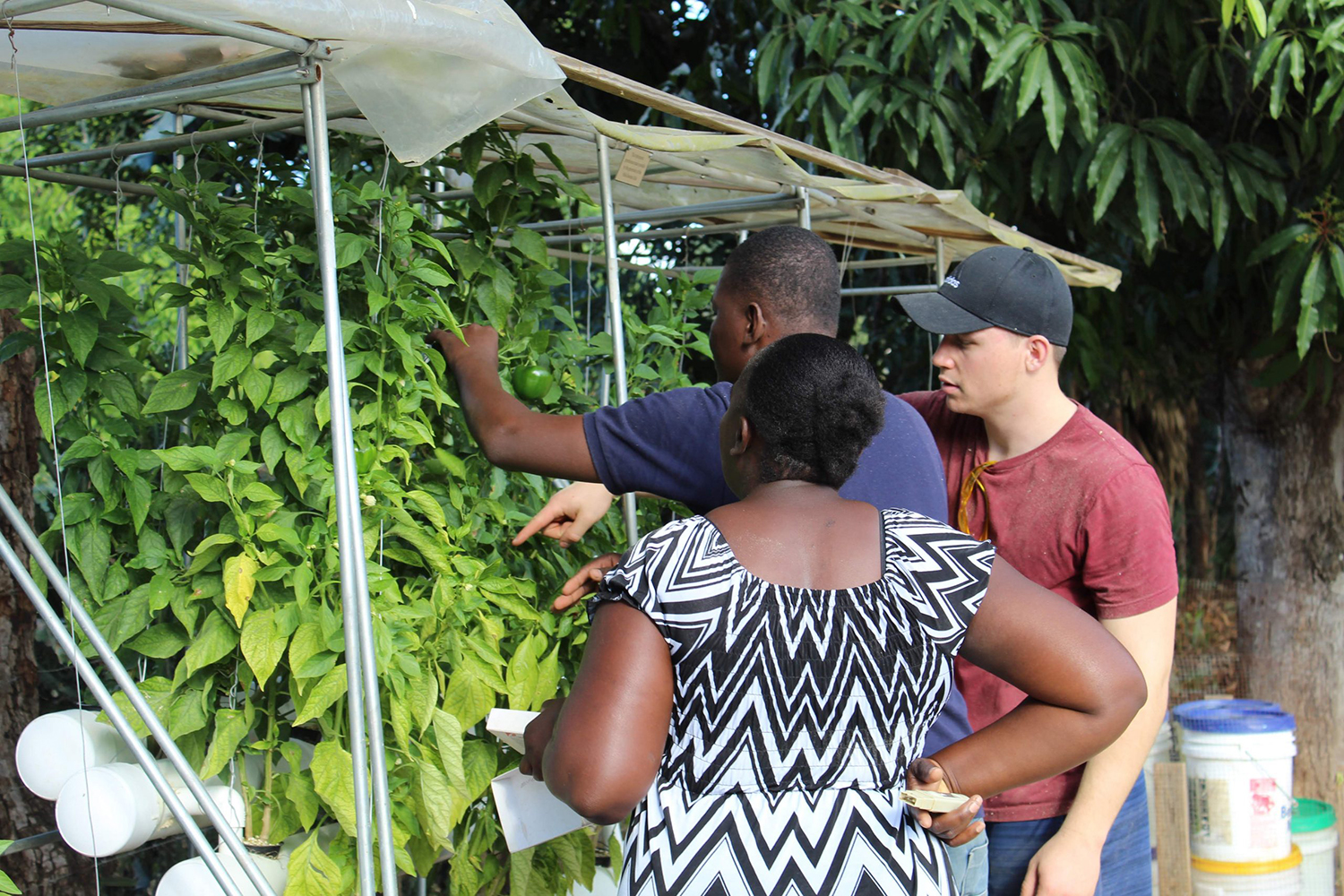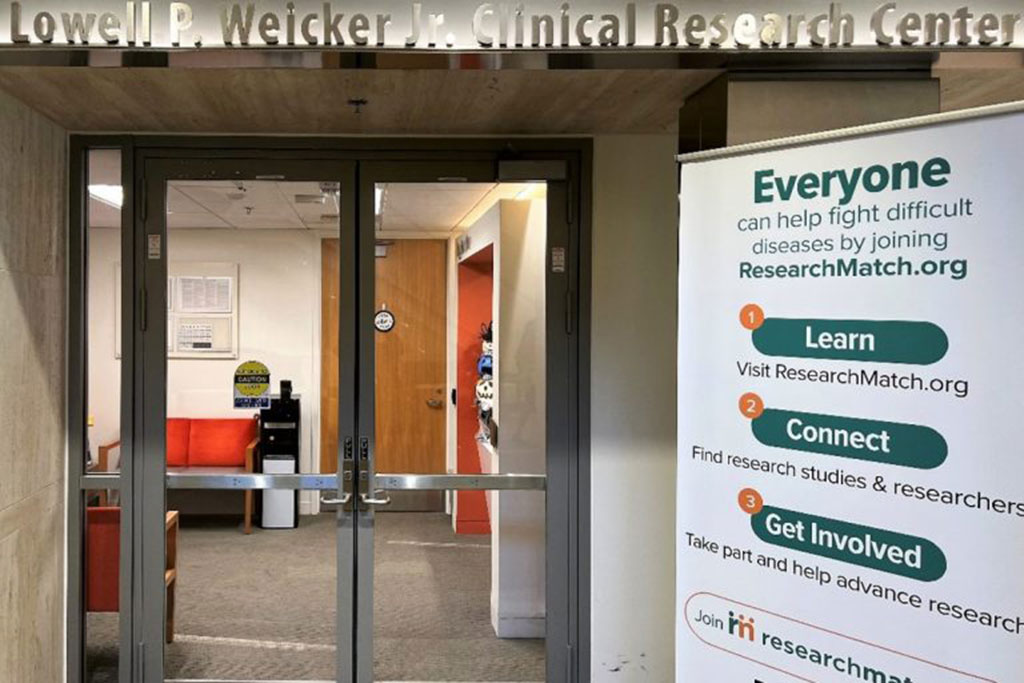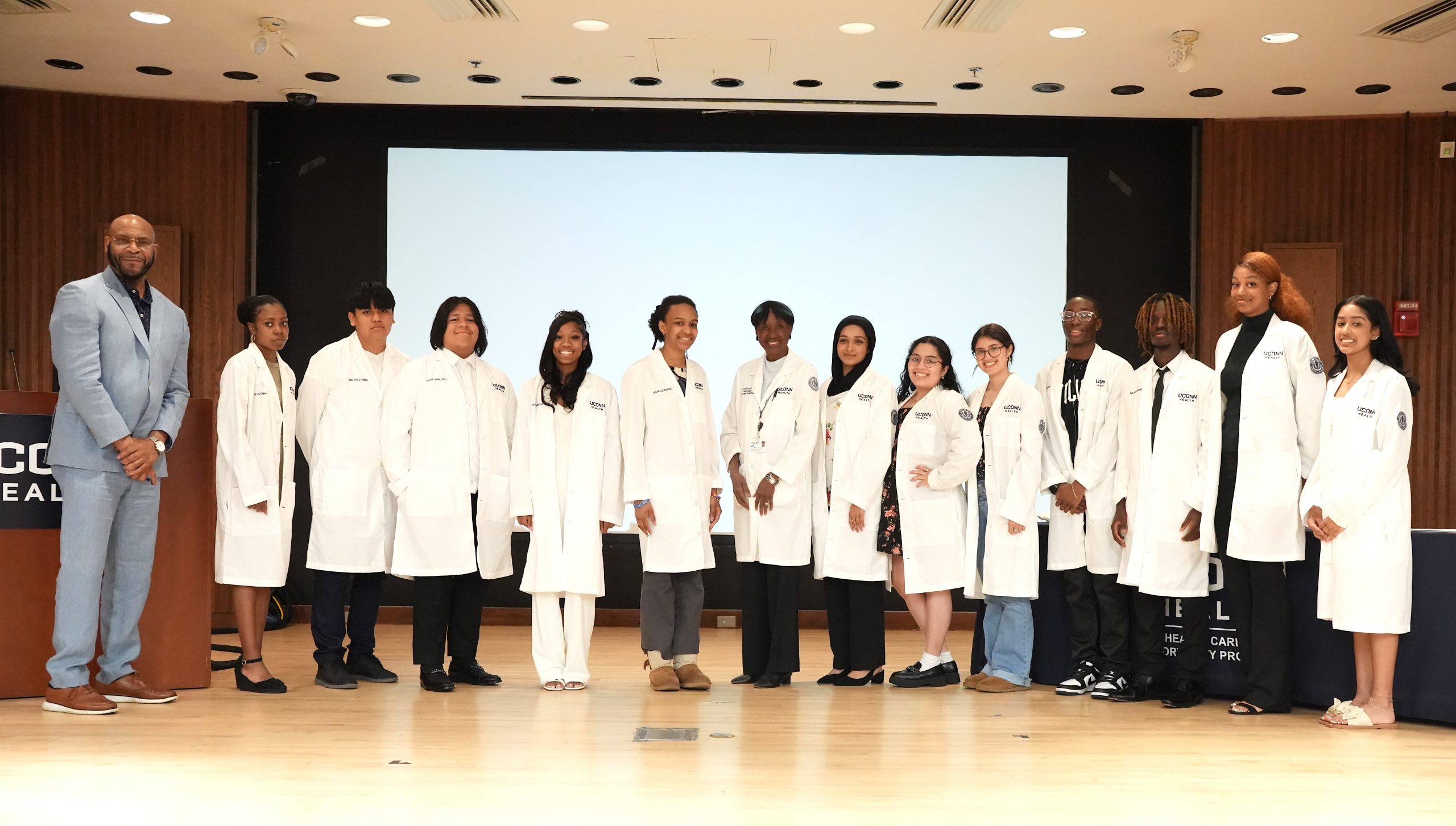When Christian Heiden discovered the Department of Agricultural and Resource Economics (ARE) in CAHNR, he felt as if there was a major created just for him.
“I’m studying applied and resource economics and international development,” he says. “I am learning how to use agriculture to create economic development and empower communities through sustainable agriculture.”
His interest in travel and developing economies began during a middle school presentation listening to a volunteer speak about working in a Ghanaian orphanage. As a student at Northwest Catholic High School, Heiden searched for a sustainable Eagle Scout project with international roots. He learned about simplified hydroponic farming technology and decided to build a basic hydroponic greenhouse at the school. They started a hydroponics club, and the following season grew produce to donate to Hartford Food Bank.
During the summer of 2016, Heiden partnered with the organization Many Hands for Haiti to raise funds and build a hydroponic hoop house at their campus. His father and older brother assisted with the hoop house, and after a successful launch, Heiden created Levo International.
Heiden chose hydroponics for vegetable production as it yields larger harvests using little water, does not require soil and takes less space compared with traditional irrigated production, which worked well for Haiti.
“With a largely agricultural economy and a climate that receives very little water six months of the year, we figured hydroponics could be a fantastic solution if we could simplify the technology,” Heiden explains.
In 2017, the new Levo team designed a hydroponic model that requires just ten square feet of space and contains a covered reservoir and hand pump that circulates the water to reduce algae growth. Each system uses about a gallon or two of water per day. In Haiti, most of the water must be hand carried in buckets, so water efficiency is a top priority. Each system can produce two harvests with fifty pounds of produce per harvest. The most commonly grown crops are leafy greens, peppers, and tomatoes.

“We realized we could maintain most of the benefits of hydroponics in a simplified way,” he says, “Hydroponics uses up to ninety percent less water than traditional agriculture. There is some water loss to evaporation, but none to runoff.”
The pipe system costs approximately $400-500 dollars to build and is currently being funded through donations. Heiden is hoping that through mass production, they will be able to price the system under $50 to make it affordable for the average family.
“We had a very successful harvest in the hydroponics greenhouse we built on the Many Hands for Haiti property, and the following year we installed one of our prototype smaller pipe systems,” Heiden says. “We had interest from agronomists, individual community members, schools, orphanages and mission organizations. We now have twenty-eight systems up and running in Haiti.” The team is working with Active Haiti and Many Hands for Haiti to build a management team. They hired staff in Haiti to operate the systems and coordinate distribution. Levo is still mostly volunteer driven, but Heiden fully expects to begin paying US staff in the near future.
“Christian is an excellent student and someone who is working hard with very low-income communities, to help them improve food security,” says Nathan Fiala, assistant professor in ARE. “His work is important for the state of Connecticut and for the people of Haiti.”
In addition to Heiden, Levo has many other UConn connections. “Assistant Professor Rosa Raudales has been very helpful advising us on hydroponics,” Heiden says. Raudales is a faculty member in the Department of Plant Science and Landscape Architecture. “Initially, we had space at the horticulture greenhouses and were working with plant science student Taylor Glaeser-Charter on seedling production, until the COVID virus shut it down.”
Tara Watrous serves as a communications and education specialist for Levo. She works full-time at the University of Connecticut, working with an emerging technology initiative out of the School of Business and launching an Innovate Wellness Initiative with Student Health and Wellness. Joshua Vallera is an accounting student who handles data analytics. They are also collaborating with the UConn School of Engineering and Digital Media and Design in the School of Fine Arts. Several students from the School of Business are working with Levo on their capstone projects.
Heiden expects to work full-time at Levo after completing his degree.
He says, “We’re not a hydroponics company. We are leveraging food security solutions to strengthen communities. The systems are built locally, with local materials. We want to provide maximum economic opportunities for local communities. We see hydroponics as an avenue that has huge possibilities. I believe this may allow us to help people in Africa, Asia and the United States.”
During the COVID pandemic, the team has been unable to travel to Haiti. So, they have partnered with several Connecticut organizations, in particular, the Keney Park Sustainability Project, Charter Oak Cultural Center, and Community Solutions. Thanks to contributions from donors, as well as grants from the Hartford Foundation and the Neag Foundation, Levo has installed close to twenty of their Victory Gardens, a solar-powered version of their Haitian systems, and expects to have up to seventy-five Victory Gardens installed in Connecticut by the end of the summer. Fiala is assisting in creating data collection and analysis for the 300 hydroponic bucket systems that will distributed to 100 low-income homes this summer. The systems being deployed this summer will allow for a large scale up next spring in both schools and low-income communities throughout New England and internationally.
Heiden is thankful for all the support from the UConn community. “UConn has been huge in providing opportunities and resources that have allowed us to expand our impact. CAHNR has given me the tools and resources that are essential to take Levo International to the next level, and many of the professors have helped me along the way.”



